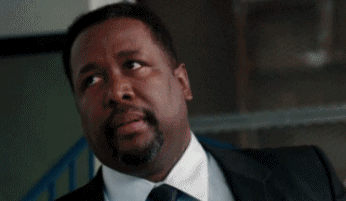March 29, 2019: My 39th birthday. This means I have entered my 40th year of life. That’s what a birthday is. A completion of a year. It’s the last year before a big milestone (supposedly).
Now, I don’t know about you, but I’d like to set fire to all the mental and physical lists of things we “should” have “achieved” by the time we’re X years old. Those things are designed to breed feelings of inadequecy. See, all of those artificial timelines and “30 things you should have by the time you’re 30,” and “40 under 40” lists … those are terrible, terrible things.
So why am I making a 40 things list? And why am I writing about it on my business website?
Well, first, this list is strictly for me. You’re welcome to borrow anything you want off it, but this isn’t me telling you “this is what you ought to do,” it’s “this is how I’d like to spend the last year of my 30s.”
Second, as a freelance business owner, you have to think a lot about mindset. In the first episode of her new podcast, Deliberate Freelancer, Melanie Padgett Powers discusses the mindset of acknowledging oneself as a business owner.
I’ve been freelancing since 2013 — we’ll talk about the origins of that at another time — but I never thought of myself as a business owner. In June of 2018, six months pregnant with my daughter, I launched Red Pen Editorial Services. Did the clients come pouring in? No. But now instead of just going from gig to gig, I am building something. Slowly, stumblingly, sometimes painfully. And you can’t deny that the better your personal mindset, the better your business one.
This idea was inspired, in part, by listening to an interview with author James Clear on the High Income Business Writing podcast, hosted by Ed Gandia. If you’re a freelancer, or freelance business owner, or a person who wants be “good at life,” these are names you should know. Clear’s theory of atomic habits talks about creating better life/work systems by improving just a little each day. I might be getting that wrong.
Ten years ago, on my 29th birthday, a friend asked me what I’d learned in the past year. Three hundred and sixty-five days from now, I’d like to have a good answer to that question. This list is about a lot of small steps. Some things are to be built over time, others will be done all at once. Some are personal. There are others that are too personal to put online. Some are business. I hope most will inform both. My ultimate goal, the one thing I truly want to learn: How to be someone my daughter can be proud of.
Anyway, here we go … 40 Things to Learn, Books to Read, Plans to Set, Habits to Make or Break, and A Bunch of Other Crap to Do and/or Work Toward By the Time I Turn 40 — A 365 Day Countdown:
1) Actually read “Atomic Habits,” by James Clear
2) Get in bed before midnight on weekdays
3) Be able to get out of bed without pain
4) Read for pleasure every day
5) Get my daughter’s baby journal up to date
6) Reread “Little Women”
7) Pay my bills on the same day every month
8) Learn to bake macarons
9) Wait 30 minutes in the morning before looking at the internet
10) Sell something I knitted (knit? What’s the past tense of knit?)
11) Drink more water
12) Ask for better rates without feeling guilty
13) Actually declutter. Like, the full Kondo.
14) Find some clothes that “spark joy” — even on my post-baby body
15) Plan and prepare meals ahead of time
16) Get away from the computer/phone an hour before I go to sleep
17) Reduce my use of verbal fillers
18) Finish reading “Writing Without Bullshit” by Josh Bernoff
19) Learn how to not only write without, but live without bullshit. Okay, less. Less bullshit. Reduce bullshit. Minimize bullshit.
20) Try mindfulness. Again. For 30 days. For 3 minutes a day for 30 days. Then if I still feel like it’s not the thing for me, be good with saying so.
21) Grasp some concept of what SEO means, beyond the actual defintion
22) Post at least one blog a month. Hopefully more, but small steps
23) Find an anchor client that PAYS WELL
24) Bake my daughter a birthday cake from scratch
25) Get comfortable (ish) driving alone with my baby
26) Learn how to be comfortable saying some version of “if you forgive me for not answering that, I’ll forgive you for asking it.”
27) Pitch five stories to national magazines (pitching SUCKS — topic for another day)
28) Read “Dreyer’s English” by Benjamin Dreyer
29) Get (and use) a Met Opera On Demand subscription (I miss New York! If you’re there and you’ve never been, go to the opera)
30) Learn how to plant and grow something
31) Attend a conference for work (I’m thinking ACES: The Society for Editing)
32) Start therapy again
33) Compile a honeymoon photo album (we went in 2017 — oops)
34) Ask for (and earn) at least $100/hour
35) Volunteer
36) Stop allowing people (and myself) to make me “feel inferior without my consent” - Eleanor Roosevelt
37) Learn the basics of using a sewing machine
38) Be sought out by clients
39) Plan a family vacation
40) Reread Jane Austen









![By Alex E. Proimos (https://www.flickr.com/photos/proimos/4199675334/) [CC BY 2.0 (https://creativecommons.org/licenses/by/2.0)], via Wikimedia Commons](https://images.squarespace-cdn.com/content/v1/5a3c435ebce17699519d79a8/1527634035075-W3QRK7VTA7TOD2MX94GX/640px-Paris_Tuileries_Garden_Facepalm_statue.jpg)